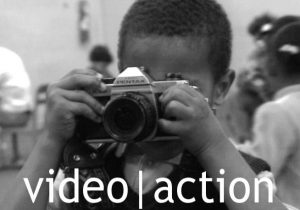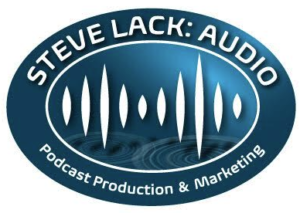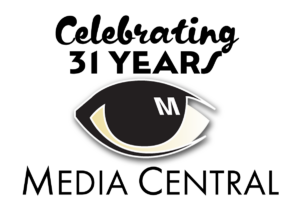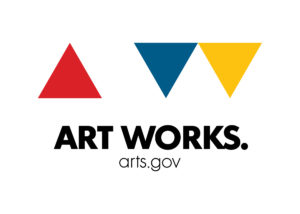By Ilya Tovbis for the Washington Jewish Film Festival

WJFF Director Ilya Tovbis talked with director Gillian Robespierre about her new film Landline, her influences, collaborators and political humor that’s gone sour. Landline opened in DC-area theaters on July 28th – tickets and more information can be found at landlinemovie.com. Original article can be found here.
ILYA: I believe it’s the fourth time you, Jenny Slate, and co-writer Elizabeth Holm have collaborated on screen, most notably of course with Obvious Child. This time you’re back with a very different story, which I’ll ask about in a second, but first could you talk a little bit about why it is you chose to come back to working with one another? What’s special about that partnership?
GILLIAN: I think it’s hard in the movie business–and the business of life–to find people who we connect with on a deep level. I met Jenny in 2009 when she was a stand-up comedian in Brooklyn and I was looking to cast the role of Donna Stern in my short version of Obvious Child. I was immediately drawn to her. She was on stage telling stories about what I felt were me and my friends, and she was not only hilarious but an amazing storyteller. She had the whole room following her elaborate stories and taking us on this journey where we were laughing and then kind of crying at the same beat. And that was so special. That was the character on the page who was able to walk that fine line of comedy and drama and I was having a hard time in the casting process of the short, seeing a lot of great New York actors but no one held a candle to this woman on stage who was drawing us in – she was magnetic.
I was drawn to her light and a similar situation happened when I met Liz Holm at a film mixer. I did not want to go to but I had to leave my house, and I don’t enjoy doing that. We were drawn to each other as humans. We were telling each other stories about growing up in New York City, sharing a couple sliders and a lot of wine and not really trying to pitch each other on films or our projects, we were just connecting as humans and I think when you have that chemistry and you don’t have to work hard to get it, but it’s organic and natural, you try to stay with those people who bring that out of you. But also it’s not a complacent relationship – Jenny, Liz and I – we don’t just sit around a room and pat each other on the back. We really push each other as storytellers and collaborators in a way that’s both healthy but also exhausting. But it always can serve us a story and I think we bring that out of each other and it’s a nice way to collaborate. It’s a nice way to be in this business – it’s a very rough business –having a sort of triangle or coven. We’re witches – we often call each other witches – it’s powerful.
ILYA: Landline concerns the story of the fissures and complicated relationships that govern a family in the mid-nineties. What drew you to these topics; what was the genesis of the film?
GILLIAN: It was right after we made Obvious Child. Jenny and I hit road, we went to all these cities and no one knew who we were and we had to promote this movie and the question that was asked at the end of every single interview was: what’s next? And to be honest there wasn’t anything next, I had spent five years trying to get Obvious Child made and put all of my energy into it. I had a day job at the time – that was what was next, promoting the movie.
You can’t help but wonder when that question is asked and you go back to the hotel room and you eat chicken tenders or whatever hotel food there is and you just are with yourself and with your thoughts, and that’s where this idea started. Sitting in these hotel rooms with Jenny and Liz and talking about our childhoods. Liz and I had a similar experience when our parents told us they were getting a divorce. They told us they were going to divorce when we were teenagers and it was in the 90s and it was a big crack and splitting of our families. But instead of the crack being widened it actually brought our families together in very strange and new ways. Our siblings became friends for the first time, they were 5 years older than us so it often felt like I had this very cool uncle in my room, we shared a room, much like Dana and Ally’s character. But we weren’t super tight and part of that was the age gap but we bonded over this split.
Our moms and dads, when you’re growing up, feel like they’re perfect humans. I would watch my mom do the New York Times crossword puzzle, like a Thursday-Friday in under 5 minutes, and I thought she was brilliant, the strongest person I ever met who survived so much trauma before I was even born. I just didn’t think she was human and to see her become vulnerable I think humanized her and I think vulnerability is the strength in that.
My Dad became a flawed man. We ended up going to the movies almost every weekend and that was our way of bonding and communicating, which was sitting in a dark room not talking to each other, but then talking about movies afterwards. So I spent a lot of my early twenties, late teens, hanging out with my dad watching arthouse movies. And when Liz and I shared that, we wanted to flip that divorce narrative on its ass a little bit. Shake it up, take something that we did in Obvious Child with the romantic comedy, but with the divorce narrative, and make it feel more lived in and relate-able.
The romance in Landline is the love affair between the two sisters who at first aren’t connecting, but throughout the course of the movie find their voices alone and together. And that’s something really magical that happened in the edit– the chemistry between Jenny Slate’s character and Abby Quin’s character – you can’t manufacture that. We wrote characters as real as we wanted – as real as we could. We wrote characters that hopefully feel three-dimensional.
ILYA: What really sticks out to me is the notion that, in showing real vulnerability, which oftentimes we’re not so comfortable seeing on screen, you’re actually bringing people closer together. That seems to be a hallmark of your filmmaking: you’re fearlessly dealing with, and almost aggressively interested in, uncomfortable topics. There are some “taboo” topics in this film: infidelity, divorce and teen drug use, just to mention a few.
Are you charged by that kind of subject matter because it’s exciting and a little bit forbidden, or is it more to do with the fact that once you look at that darker, less-perfect, more shaded aspect of a personality, you’re able to get at something more emotionally true?
GILLIAN: All of it. What you just said is so beautiful and really deep. I think all of that is what energizes me as a storyteller and a director. The forbidden truth is something that we all reach for; the darker subjects that are so with us in our daily lives and somehow we’re not allowed to enjoy them or watch them unfold necessarily in our current, modern movies and culture.
I think TV is doing a very good job right now of uncovering the messiness of life and that is what I talk about on and off screen. It’s what we live and feel and breathe and I like uncovering those darker stories, and I find those darker stories have so many comedic elements waiting just right around the corner. It isn’t just the darkness I want to unearth, it’s the joy of sitting in it sometimes, and the messiness around it, and the love and laughter that comes with it, without sounding too cheesy or like a hallmark movie because I think all our movies – the two movies that we’ve made – try not to wrap life up in a nice, neat bow.
We want to have hope in there, but also to ignite a conversation, especially with Obvious Child we were definitely trying to ignite a conversation. But with Landline it was to ignite this idea that you’re not so alone, that either you’re having issues within a relationship, you can’t find your own voice, growing is becoming very difficult, or you’re watching your parents’ marriage fall apart or your own marriage is falling apart. But there’s so many ways that I hope people relate to each one of the characters.
ILYA: To me, what’s incredible about these two films, and I think the biggest compliment I can give, is you managed to pull off the magical trick of good comedy – you’re taking very weighty topics, not one-off gags, and you’re managing to on one hand deal with them earnestly, and on the other hand imbue the film, from beginning to end, with a levity and a funniness that verges on nastiness and guttural humor.
Can you talk about how you calibrate the tone of your filmmaking to simultaneously handle loneliness and desperation and some of these uglier parts of our human self, and still play it for laughs all the while?
GILLIAN: A moment of my own life I often go back to is my grandfather’s funeral. He was in the military – not decorated – but he had a military funeral. And it was just small immediate family; it was my mom and my dad and my brother. And a guy in the military came with a boom box, put in a tape version of Taps, and played it. And it was so bizarre, and not moving at all. It was just very silly, and funny, but we were also so sad and devastated. He was the only grandparent I ever grew up with, so I was extremely torn up and sad, but we were able to cry and then kind of see the humor in the moment and then go to a diner in New Jersey and eat tuna melts, like all post-Jewish funerals we would end up in a diner somewhere, either in New Jersey or Long Island.
That’s a moment in my life that I draw from where the darkness and humor are overlapping and, even with the sadness and tragedy of death there’s always a joke right around the corner, and I just can’t imagine not using or feeling humor in those moments. And it’s not necessarily just deflection because sometimes comedy is just a deflection, and that could be funny in both real life and on the screen – I’ve used it that way as well – but for it to also be something that brings characters together and serves as a story is exciting to me.
ILYA: The film is full of very evocative period details – from floppy discs and payphones to trips to Benihana and Steve Winwood rockouts. There is also the particular texture of mid-1990s Manhattan, and the more intimate details that the family exhibits by way of their wealthy Jewish-Italian existence. When shooting – how much of your focus is on getting these specifics right, and how much on telling a universal story that can catch on with people outside?
GILLIAN: Well, we weren’t really trying to show a wealthy family. We were trying to show this last moment in New York in the 90s where middle-class families really thrived. My parents still live in Peter Cooper-Stuyvesant town. They were able to send my brother and I to private school but also have a very cheap apartment downtown and can afford a little tiny country house. So, we were trying to show a middle-class family rather than the wealthy families who really feel like they only exist in Manhattan right now. That was something that was sort of ending in the 90s and other things that were happening with the cities – there was sort of all this reshaping and it was in line with our family taking on these shapes.
The 90s wasn’t just to set a time period where we didn’t have to have Facebook be in our movie, or people stalking, or going on Tinder, but there was also some poetic symmetry in what was going on in the 90s with what’s going on in the Jacobs family and in our own families. But also, we really felt like it was the last time where we were free of that technology. I never had am online profile. We had one family computer. We all had to gather around one television. There was a landline that was the hub and the beating heart of our apartment and we were forced to interact with each other.
I’m not saying we did it any better because we didn’t have technology. I think communicating is hard. Emotionally communicating is hard to do now and it was hard to do then – it’s difficult – but I think we were forced to do things more face-to-face than we are now. We’re all so buried in our own pockets, it’s hard to dig out, and it was a nice moment in time that we wanted to capture. But we also wanted to make sure that if we took that element out, that it would still be a functional story and relate-able to anybody, but it was definitely fun to go back in time.
New York as you know looks nothing like the 90s so we had some obstacles called Citibank, Citybikes, Starbucks, Duane Reed – they’re everywhere! I mean the city is one giant blue turd now. But we got to do really fun things. We found an apartment that was about to be renovated so it had all the old fixtures and tubs and tiling. We got to start from scratch there and really build this lived-in apartment and I think, like most of our apartments, they’re not necessarily just objects and artifacts from the current time, they’re years of building, so we had a lot of things that felt very 70s and 80s alongside the 90s. VHS tapes and the TVs with the VCR attached, all of those things were definitely fun to dig up – hard to find – also that printer probably caused us so much anxiety. We probably had set aside 40 minutes each to do it and it took over an hour because no one could figure out how to use it.
ILYA: The film was shot during the election, and one of my favorite moments revolves around a 90s Hillary Clinton, and her pink suit. That gag takes on a much different tone now that the election is over, and she’s not in the White House, and, keeping in mind that she was delivering her famous “women’s rights are human rights” speech in the background of a marital squabble” – there is a really cutting irony there, which feels doubly ironic now. Do you think the messages in the film, or that scene in particular, can be perceived differently in today’s political reality?
GILLIAN: It changed the scene in so many ways when we were shooting and writing. We all really believed that Hillary was going to be our next president and it was written a little more tongue-in-cheek. We still do get laughs when she’s wearing the pink suit but it’s followed by a couple of exhausted sighs afterwards. The women’s rights or human’s rights speech was – we chose that one for so many reasons – it was the most famous one, I think it was also September 1995 so it was perfect timing for our story, and Edie Falco’s character parallels Hillary’s real life in so many ways. They’re both these strong matriarchs who are dealing with secrets and their husbands’ infidelity and holding it together so it was both those parallels but ultimately we wanted it to be really funny.
Then we were editing when the elections took place, we were all just devastated. Sitting in the room; it was sad and we didn’t really work that day. We talked about the scene and we watched the scene and we left it as is because it was written and we liked it but it brought a darkness and a heaviness to that moment that I do enjoy. I wouldn’t trade it for the current situation we’re in, I would love to say that she’s our president and that scene was light and funny, but it does add heaviness that I’m into and I kind of like going into darkness – darker places.
ILYA: To me, it’s still one of the funniest and most honest moments in the movie, and at the same time this internal sob hits you immediately afterwards – you almost feel bad for laughing. What’s next for you after Landline?
GILLIAN: I directed two episodes of a TV show called Casual in the spring that just aired this month, and on Monday I start work on two episodes of a TV show called Crashing. Then in the fall it’s going to be sweater weather in New York and I’m going to go back into my legging cave and see what happens.

















